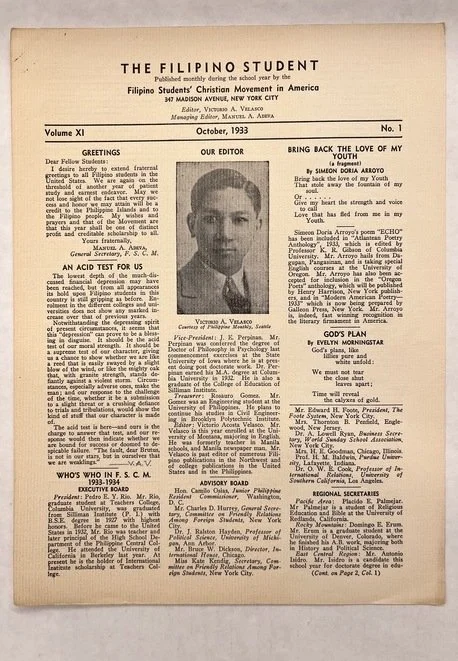Image description and source
VICTORIO VELASCO
Velasco's life implicitly answers many of the questions that we are asking at Archipelago. Namely, how one becomes a guiding presence in community questions of justice, and how our work comes to outlive us. The Velasco archives were donated to the University of Washington's special collections in the 1970s. The Special Collections Librarian on cannery labor has thoughtfully curated many finding aids and resources on Velasco's personal life and professional accomplishments.
When the team reads an archive, we are doing it for what we know, but are excited to learn what we don't. In the case of the Velasco papers, we went through boxes including personal papers, address books, and journals. What we found surprised us - and felt like leads in continuing the story we try to tell about our community. All the trappings of a life, including dreams made, letters sent, long hours worked in the canneries of Alaska, burst from the pages. It was poetry, the collections of address books of Filipino- American families, the pamphlets on housing justice initiatives in protest of exclusionary zoning, and powerful collective statements directed to the UN for an immediate ceasefire during the Algerian war.
Faced with such richness, the team has a challenge to figure out which stories to tell. What is told must be an invitation to learn more, to instill a hunger in our guests that cannot be satisfied through food alone.


